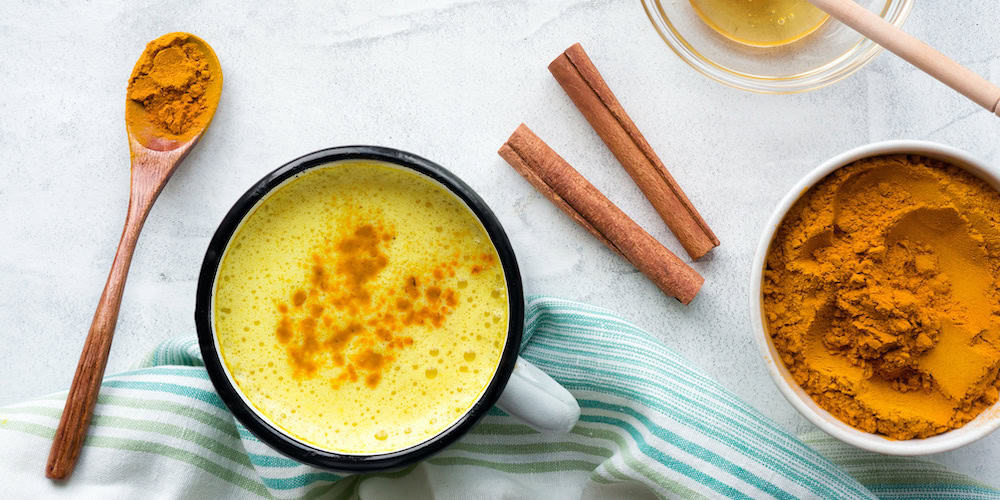You may be looking for drink ideas to replace your morning coffee or the midday espresso.
For drinkers of Arabica or Robusta, it is advisable not to exceed a maximum of two to three cups of coffee per day (400 mg) in order to avoid its adverse effects: palpitations, digestive issues, disrupted sleep, tremors, dehydration…
Whether it’s a matter of flavors or primarily to reduce caffeine consumption, exploring new options for hydration is an interesting health and wellness approach.
So, what should you replace coffee with? I’m sharing 10 delicious choices to try, stimulating drinks with and without caffeine and their various benefits.
1. Green tea, the antioxidant beverage
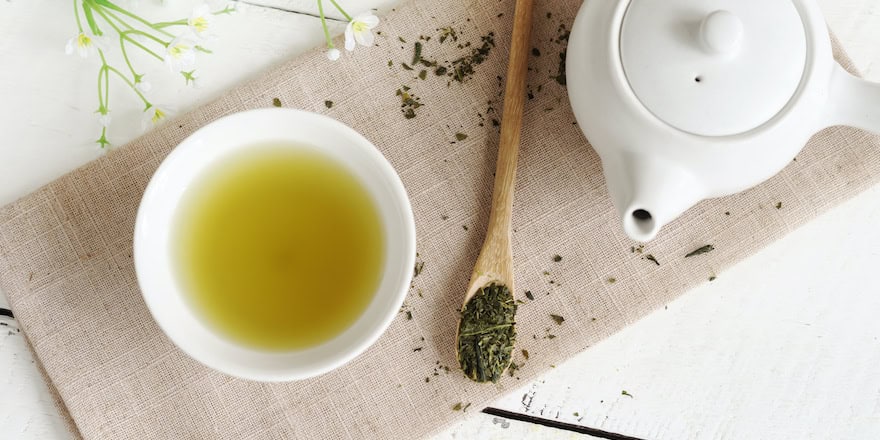
With a delicate flavor and rich in polyphenols and catechins — including EGCG, which is particularly beneficial for health — green tea is an excellent alternative to coffee.
Although it contains theine, a molecule similar to caffeine, 1 cup of green tea contains less than 50 mg, or about half that of a coffee.
Above all, it does not act in the same way. Thanks to its antioxidants, green tea promotes alertness with a gradual release of caffeine.
It is invigorating without making you jittery, without that coffee jolt effect. In the morning and during the day, prepare your hot drink.
If you want to decaffeinate it, brew it for a few seconds and discard this first water. Brew the same leaves again; this trick helps reduce the caffeine content.
2. Maté or yerba maté, the stimulating beverage
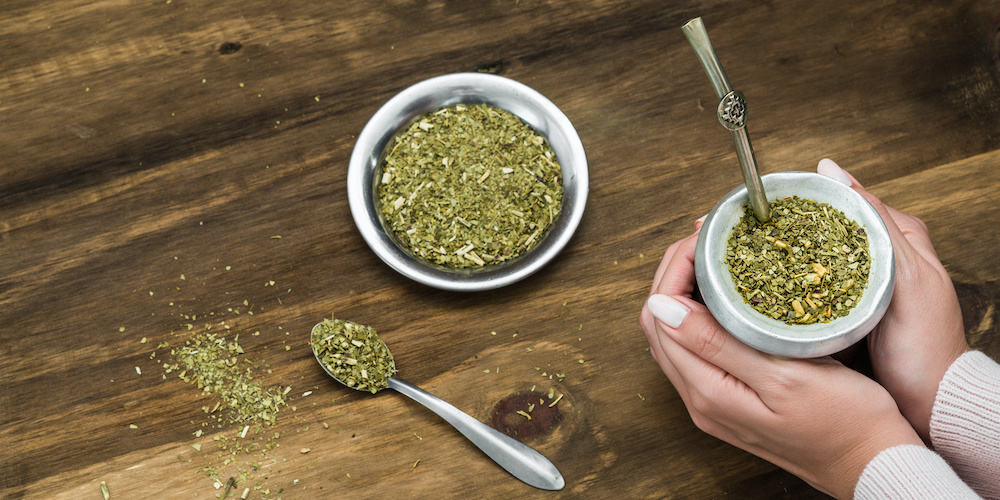
A South American plant, mate is very popular with athletes. Its caffeine content is quite close to that of coffee.
Its greenish color and flavor recall its herbaceous origin, a notable difference from coffee. It is prepared with hot water, at a maximum of 80°C. Mate can be brewed repeatedly until the taste becomes less pronounced.
Antioxidant beverage and performance booster, it is gaining more and more followers, with or without “bombilla” (traditional gourd).
📚 Also read | How to choose the best yerba mate?
3. Guarana, the fatigue-fighting plant
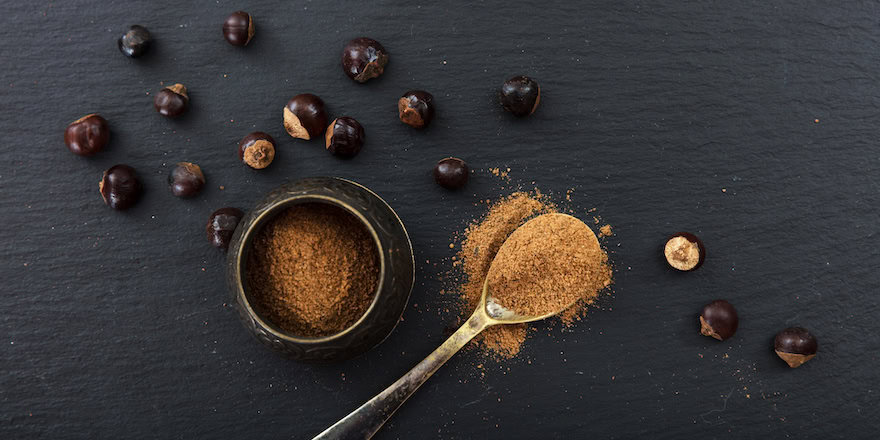
Another South American plant, more precisely of Brazilian origin, guarana has a higher caffeine content than coffee.
To reduce fatigue, increase energy and alertness, guarana is also recognized for its potential usefulness in the prevention of obesity and metabolic disorders.
It is preferably consumed in powder form rather than as capsules or in sodas. Guarana has a distinctive, strong taste that can be blended into fruit juice or a smoothie to mellow it.
The proper daily guarana dosage is 50 to 75 mg, enough to feel its benefits and a maximum of 250 mg per day.
📚 Also read | Where to buy guarana?
4. Cocoa to enjoy
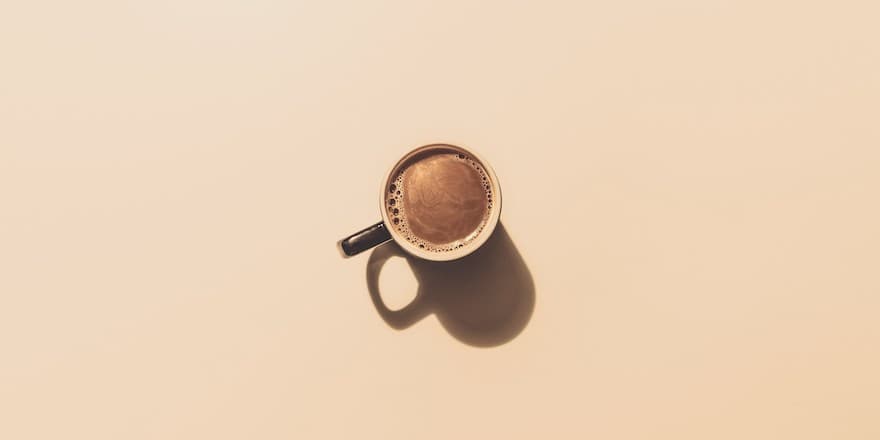
Comforting, cocoa powder has that natural sweetness that coffee cannot imitate. As for its caffeine content, it is much lower at 4 to 5 mg per cup.
Depending on your taste, the cocoa drink is made with water, milk, or a hot plant-based drink.
Low in fat and sugar, contrary to popular belief, cocoa is an excellent healthy drink. Its richness in flavonoids gives it anti-inflammatory, anti-diabetic, anti-steatotic and memory-protective effects.
🎧 Listen to our podcast | Incredible chocolate
5. Matcha, an ally for cognitive function
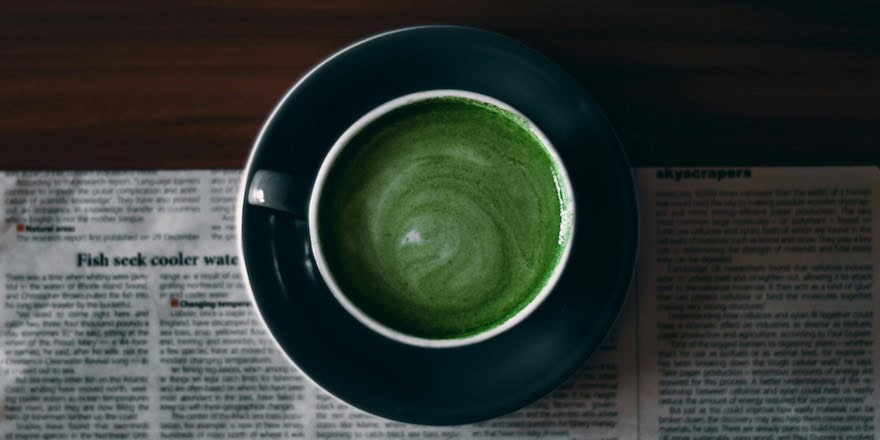
Stress-relieving drink, this Japanese green tea is a powder made from grinding very concentrated tea leaves. It is particularly rich in antioxidants and L-theanine, more than other teas.
This amino acid promotes relaxation and concentration. Studies have even shown that consuming matcha daily could help better cope with stressful situations.
When preparing it, pour the matcha tea powder into a bowl and whisk the mixture until you get a nice foam.
Its delicate aromas are nonetheless full of energy and benefits. Its caffeine content is 3 to 4 times lower than coffee. However, this is what makes its stimulating effect more stable.
6. Chicory for its resemblance to coffee
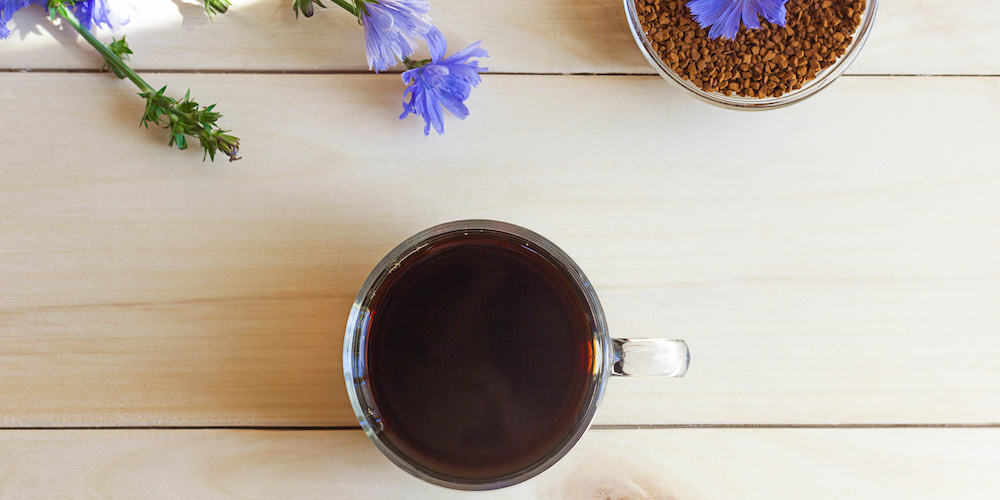
It is the roots of this pretty blue flower that, when roasted, become a delicious beverage. Caffeine-free and similar to coffee in terms of taste and color, chicory has it all.
A draining and cleansing beverage rich in inulin, vitamins and minerals, chicory cares for liver and intestinal health.
It also helps regulate appetite. To replace the morning coffee, you can have a cup of chicory with 1 to 2 teaspoons in 125 ml of hot water and another in the evening, before dinner.
7. Rooibos, the South African infusion
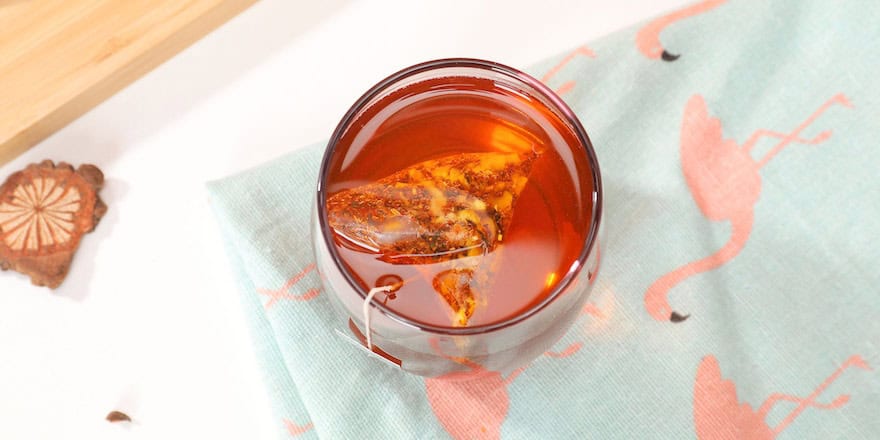
This caffeine-free red tea offers many benefits thanks to its polyphenols. Its organoleptic qualities provide a pleasant smoothness, any time of day.
Not quite a tea, since it comes from a shrub rather than the tea plant, rooibos is also known for relieving stomach cramps.
Preferably, let fresh rooibos leaves steep for 5 to 10 minutes in hot water to release their active compounds. You can also choose it in a teabag.
8. Maca, the Peruvian energizer
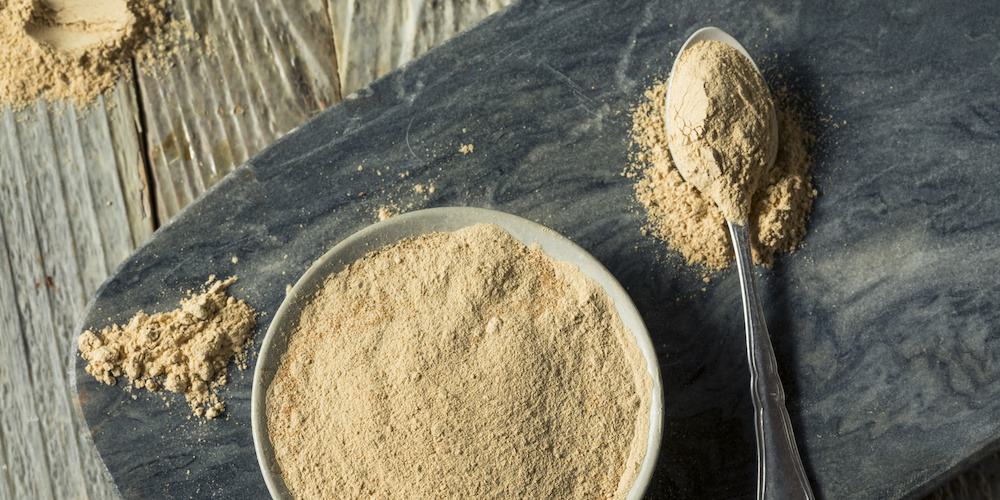
This plant with energizing properties is also consumed to support hormonal balance in both women and men.
Natural aphrodisiac for some or source of vitality for others, maca has its rightful place among the family of superfoods.
You can find this ingredient in powder form at health food stores or pharmacies. To prepare your maca drink, use cold water or sprinkle it over your yogurt, smoothies, or oats.
📚 Also read | What you need to know before buying maca
9. Golden Milk, the Ayurvedic drink
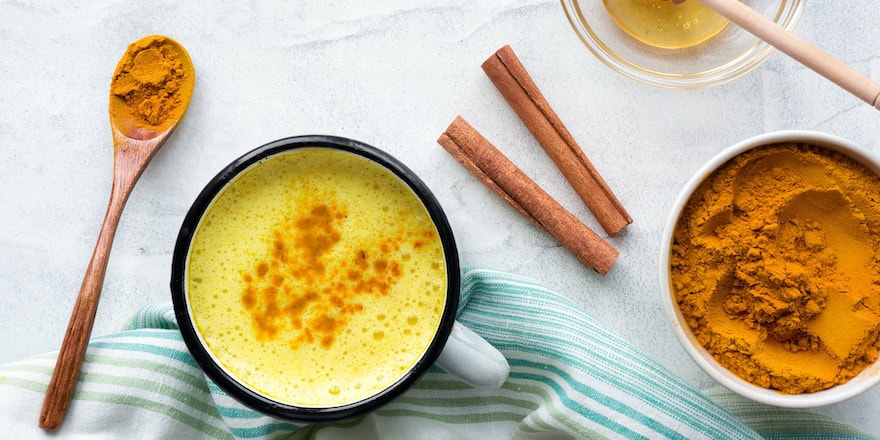
A drink of Indian origin, golden milk is a traditional recipe made from plant-based milk and turmeric, black pepper and a blend of spices.
While this warm drink soothes and comforts, the anti-inflammatory potential of the spices it contains is a real asset.
Heat the milk over low heat and add the spices, letting it simmer for a few minutes. To promote restorative sleep, you can drink a cup of golden milk before bedtime.
10. Ginseng, the adaptogenic root
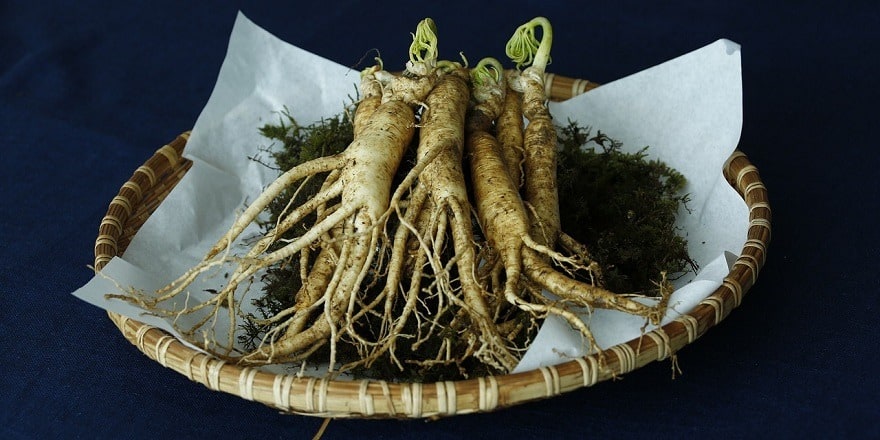
Because its action helps reduce physical and psychological stress, Panax ginseng is one of the most popular adaptogenic plants.
Without side effects, ginseng reduces fatigue while boosting cognitive and physical performance. It helps the body better cope with different situations and fights lack of motivation.
In a saucepan of boiling water, add the pre-cut ginseng pieces. Let them steep for 15 minutes, then strain the water: your tonic decoction is ready.
📚 Also read | What is the best ginseng? A pharmacist’s opinion
Sources and scientific studies
Habitual intake of guaraná and metabolic morbidities: an epidemiological study of an elderly Amazonian population – Cristina da Costa Krewer , Euler Esteves Ribeiro, Ednéa Aguiar Maia Ribeiro, Rafael Noal Moresco, Maria Izabel de Ugalde Marques da Rocha, Greice Franciele Feyl dos Santos Montagner, Michel Mansur Machado, Karin Viegas, Elorídes Brito, Ivana Beatrice Mânica da Cruz, 2011
Yeyi Gu 1 , Shan Yu, Joshua D Lambert – Dietary cocoa ameliorates obesity-related inflammation in high fat-fed mice, 2014
Yoshitake Baba, Toshiyuki Kaneko Takanobu Takihara – Matcha consumption maintains attentional function following a mild acute psychological stress without affecting a feeling of fatigue: A randomized placebo-controlled study in young adults, 2020
Fouré M, Dugardin C, Foligné B, Hance P, Cadalen T, Delcourt A, Taminiau B, Daube G, Ravallec R, Cudennec B, Hilbert JL, Lucau-Danila A. – Chicory Roots for Prebiotics and Appetite Regulation, 2018
Jeanine L Marnewick, Fanie Rautenbach, Irma Venter, Henry Neethling, Dee M Blackhurst, Petro Wolmarans, Muiruri Macharia – Effects of rooibos on oxidative stress and biochemical parameters in adults at risk for cardiovascular disease, 2010
Gustavo F Gonzales – Ethnobiology and Ethnopharmacology of Lepidium meyenii, a Plant from the Peruvian Highlands, 2012
Hoang Viet Bach, Jeongseon Kim , Seung Kwon Myung , Young Ae Cho – Efficacy of Ginseng Supplements on Fatigue and Physical Performance: a Meta-analysis, 2016


